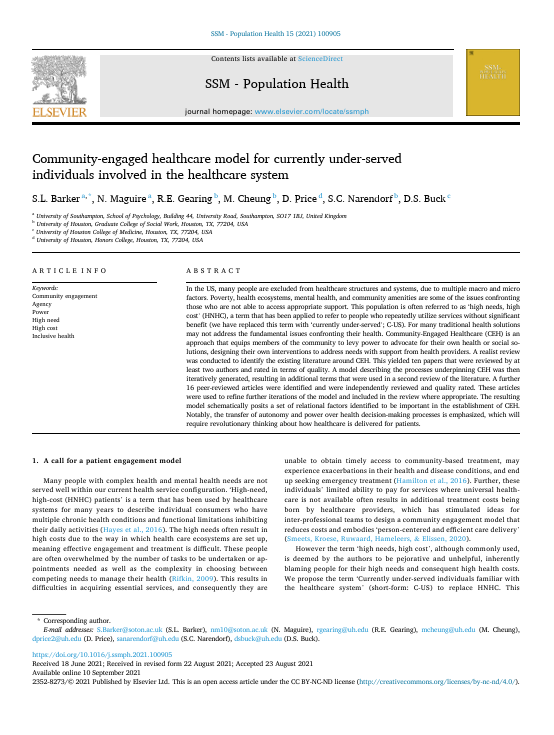Headline
A community-engaged health care model that shifts power and agency to underserved patients may lead to more responsive and accessible care.
Background
Many individuals with complex health and social needs face systemic and structural barriers to health care and social supports and services, which often leads to poorer health outcomes and increased reliance on emergency services. This review explores community-engaged health care (CEH), an approach that empowers communities to help design health interventions that are more effective and responsive to their needs. It also introduces a relationship-based model that supports collaboration between health care providers, patients, and communities by focusing on shared power and decision-making.
Findings
Using a realist review, the authors synthesized 26 articles to develop a model for CEH. The proposed CEH model illustrates the multiple levels of influence between health systems and individuals, emphasizes the central role of community agency and power in engagement, and identifies key barriers and enablers. It integrates evidenced-based best practices for community engagement and encourages providers to engage more meaningfully with communities that are underserved to enhance the quality and delivery of health care services.
Policy/Program Takeaways
Effective community engagement can play a critical role in improving service delivery and population health. Health care systems and providers can consider investing more in partnering with communities and evaluating the outcomes of these efforts to better understand the impact of community-driven interventions, including on different populations.


